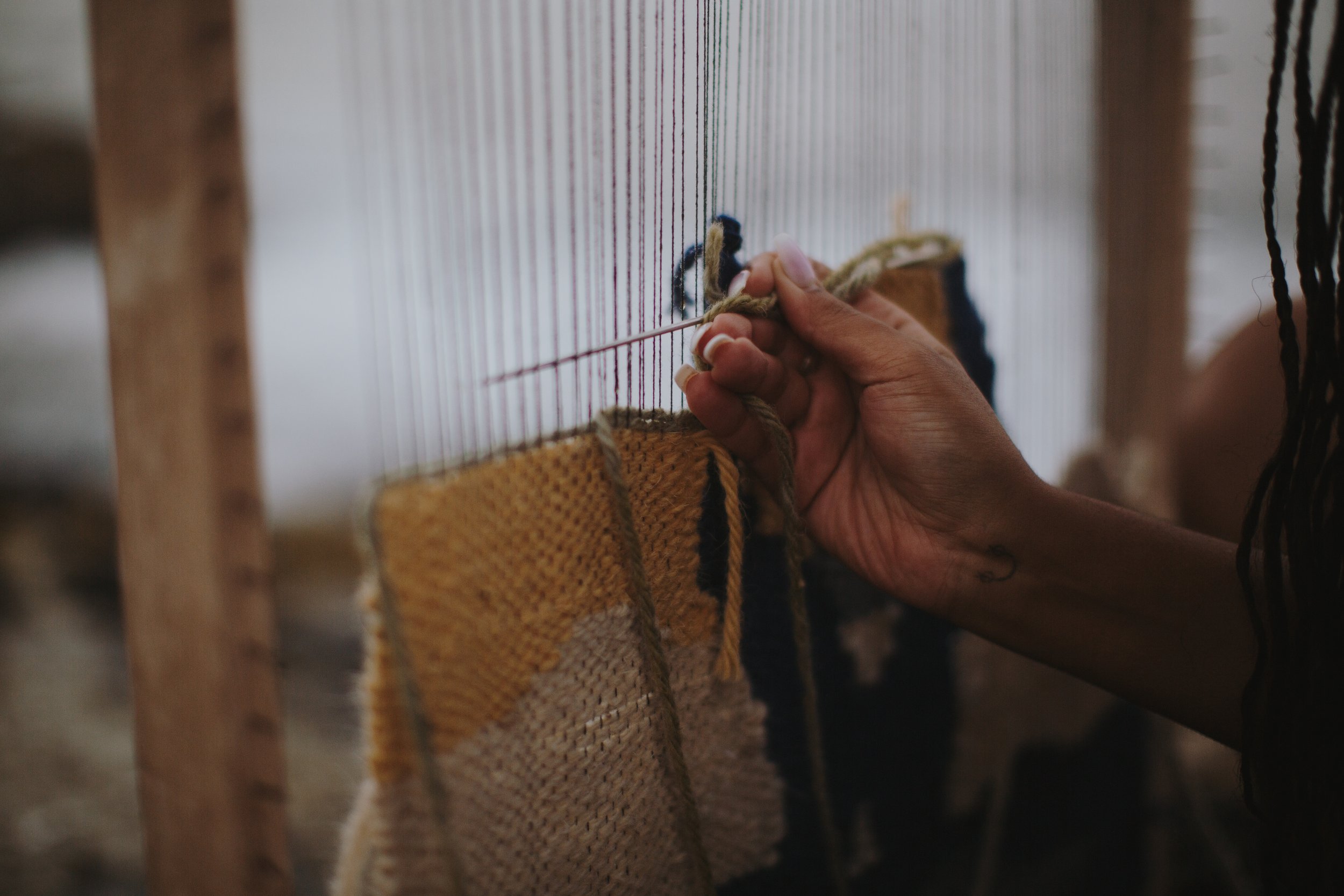Zethu Maseko commissioned as part of Landedness
Image courtesy of the artist. Photo by Hannah Beth.
We’re pleased to announce that Zethu Maseko has been commissioned to create new artworks as part of the Landedness programme.
Landedness is partly a commissioning programme, and it builds on Ejaradini, a two-year project by MADEYOULOOK at Primary (2020-2022).
For Ejaradini, MADEYOULOOK had considered how personal gardens have featured in the lives of ordinary Black people, particularly under the difficult circumstances of forced removals, migration, and the challenges of labour politics within the context of South Africa. Landedness aims to highlight nature’s complex issues and connections by expanding on these subjects. The programme explores topics such as land access, custodianship and intimacy.
Image courtesy of the artist. Photo by Hannah Beth.
Between March - November 2022, Zethu will develop a large-scale quilted banner/tapestry created from natural dyes in response to conversations and specific place-based experiences of Black people and people of colour. A group convened by Primary in the UK will get the opportunity to explore the idea of “landedness” from both the UK and South African cultural context.
From March, Zethu will work alongside a Gardening Facilitator / Gardener to co-design and deliver a set of four workshops around the subject of Black urban gardening. The workshops will have a focus on storytelling, introducing participants to South African native plants found in the UK landscape. She will encourage discussion around the displacement of indigenous plants such as Crocosmia, Agapanthus, Bamboo, Gerbera, and Osteospermum. As a co-facilitator of the sessions, she will invite participants to plant Isicakathi (aka Agapanthus in the UK) and learn about the plant’s origins and indigenous medicinal uses.
Zethu Maseko, Water Words (2021). Image courtesy of BACKLIT and the artist.
The new artworks will develop from Water Words (2021), a series of tapestry and sound commissioned by BACKLIT in Nottingham. Water Words explores water cycles concerning the human body, historical events, the hydraulic cycle (in relationship to the land), and indigenous relationships to water.
“Landedness will allow for the development of my ideas, practice and research around relationships to land, whilst connecting with other practitioners and contributors. My contribution to the project will identify how land plays a role in identity, history, and protest.”
Jade Foster, Assistant Curator (Public Programme) says “It is great to support Zethu in deepening her research. Primary will look forward to learning about her expansive knowledge and relationship to land as an artist of the South African Diaspora. It was important for us to recognise cultural difference by supporting an artist with a personal connection and understanding of some of the particular histories and nuances within the South African context.”
Zethu Maseko (London, UK) is an artist, researcher and cultural worker. She graduated from Goldsmiths, the University of London, in 2020 with a First Class, BA (Hons) Fine Art. On graduating, she was awarded the Nicholas and Andrie Tooth Travelling Scholarship. Zethu was selected for New Contemporaries 2020, and her first solo exhibition was in September 2021. She is currently based between South Africa and the UK. Zethu received recognition for her workshops in South Africa when she received the Young Achiever Future Leader Award from Universal Peace Federation at UK Parliament 2019. Her current practice focuses on tapestry and sound but has included performance, film and costume.
Through several mediums and processes, she practises indigenising conversations around water, land and the human experience. She has a continuous tapestry practice, exploring and depicting alternative mythological realities or unseen worlds informed by historical truths and underrepresented stories. Much of the imagery and symbols in her works derive from explorations of dream visions and give focus to memory, geography, connectivity, healing, belonging and ancestry. Through landscape audio samples, instrument experimentation and vocal expression, her sound works explore the pursuit of postcolonial identity, healing, and Afrofuturism, reflecting on truthful pasts and un-promised futures.


